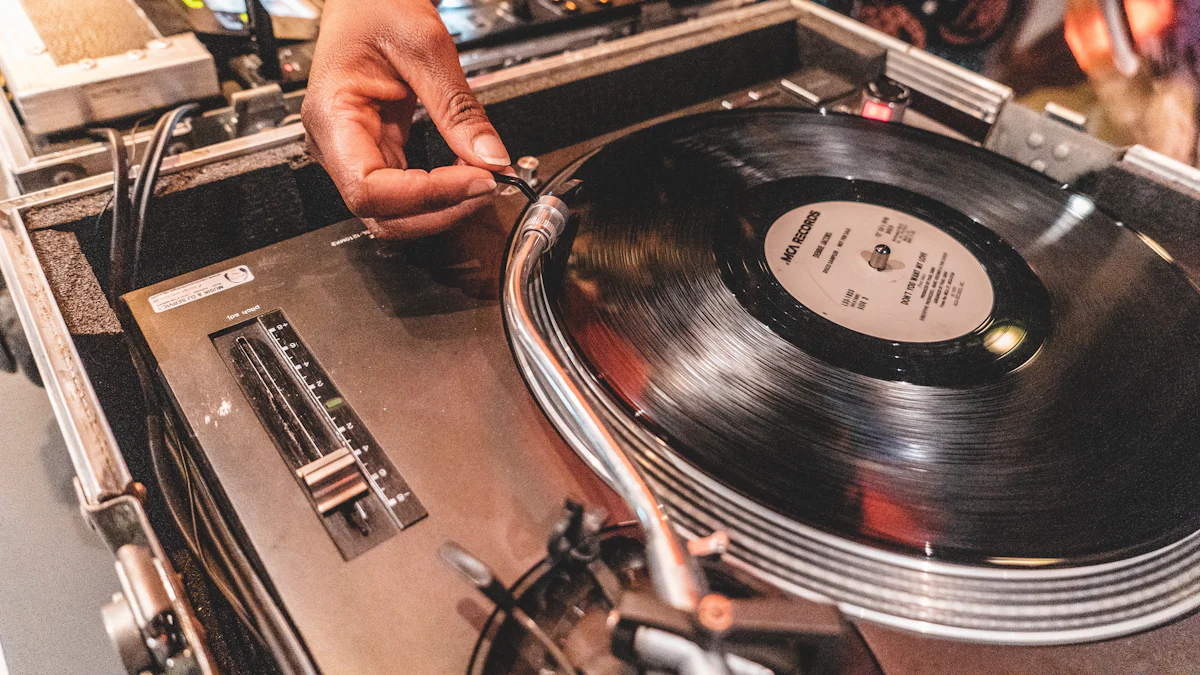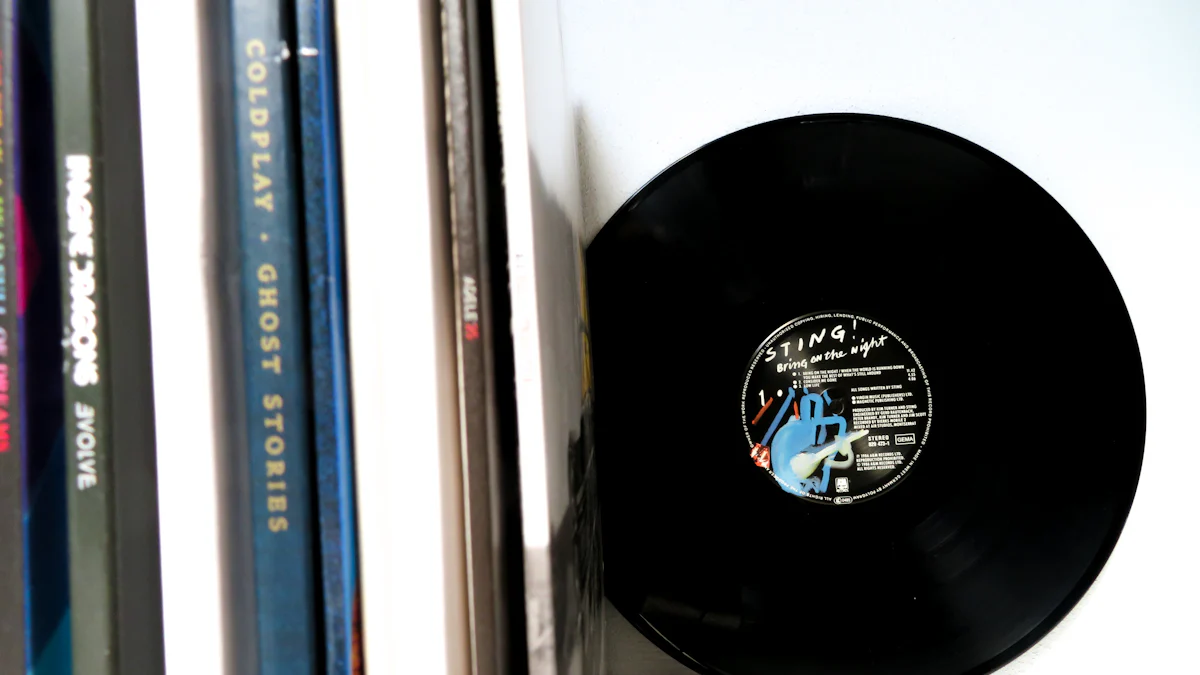How Much Is a Vinyl Cutting Machine?

Vinyl cutting machines come in a wide price range, so if you're wondering how much is a vinyl cutting machine, you'll find options starting as low as $150 and reaching up to $5,000. The cost depends on factors like the machine’s size, features, and purpose. Entry-level models, priced between $50 and $400, are perfect for hobbyists or small projects. Professional-grade machines, often exceeding $1,000, offer advanced features like faster speeds and the ability to handle tougher materials. While cheaper options may seem appealing, they might lead to higher maintenance costs over time. Choosing the right machine means balancing your budget with your needs.
Key Takeaways
- Vinyl cutting machines range in price from $150 to $5,000, with options for hobbyists and professionals alike.
- Understanding the key components—like the blade, cutting mat, and software—can help you choose the right machine for your needs.
- Consider your intended use: entry-level machines are great for personal projects, while professional-grade models are essential for businesses requiring bulk production. Research and compare different models to find the best fit for your budget and project requirements, paying attention to features like cutting width and speed.
- Investing in a higher-quality machine can save you money in the long run by reducing maintenance costs and improving efficiency. Vinyl cutting machines are versatile tools that can be used for crafting, business applications, and even educational purposes, expanding your creative possibilities.
What Is a Vinyl Cutting Machine?

Definition and Basic Functionality
A vinyl cutting machine is a tool that allows you to turn your creative ideas into tangible designs. It uses a small, sharp blade to cut vinyl or other materials into precise shapes and patterns. Think of it as a printer, but instead of ink, it uses a blade to carve out your designs. You can create anything from custom decals to intricate stickers with this device.
Most vinyl cutters come with software that lets you design or upload templates. Once you’ve finalized your design, the machine reads the file and cuts the material accordingly. This process ensures high accuracy, making it perfect for both simple and complex projects. Whether you’re crafting at home or running a business, a vinyl cutter gives you the power to bring your ideas to life.
Key Components of a Vinyl Cutting Machine
To understand how a vinyl cutting machine works, it helps to know its main components. Each part plays a crucial role in delivering precise and efficient results:
-
Blade: The blade is the heart of the machine. It’s responsible for cutting the material into your desired shapes. High-quality blades ensure clean and accurate cuts, even for intricate designs.
-
Cutting Mat: This mat holds the vinyl in place during the cutting process. It prevents the material from shifting, ensuring your design stays aligned.
-
Rollers: Rollers feed the vinyl through the machine smoothly. They help maintain consistent pressure, which is essential for precise cuts.
-
Control Panel: The control panel lets you adjust settings like cutting speed and pressure. This customization ensures the machine handles different materials effectively.
-
Software: Most vinyl cutters come with their own design software. This tool allows you to create, edit, or upload designs. Once ready, the software sends the file to the machine for cutting.
-
Connectivity Options: Many machines connect to your computer via USB or Bluetooth. This feature makes it easy to transfer designs directly from your device to the cutter.
“Vinyl cutting machines work similarly to printers, but instead of ink, they use a blade to cut designs,” as described by experts. This similarity makes them user-friendly, especially if you’re familiar with operating printers.
By understanding these components, you’ll have a better grasp of how vinyl cutters operate. This knowledge can also help you choose a machine that fits your needs, whether you’re a hobbyist or a professional.
What Are Vinyl Cutting Machines Used For?
Crafting and DIY Projects
Vinyl cutting machines open up a world of creativity for crafting enthusiasts. You can use them to design custom decals, stickers, and labels for personalizing your belongings. Many crafters enjoy making unique home decor items like wall art, window clings, or even custom mugs. Scrapbooking becomes more exciting when you can cut intricate shapes and lettering to enhance your pages.
If you’re into fashion, vinyl cutters let you create custom designs for T-shirts, tote bags, and hats. Heat transfer vinyl (HTV) works perfectly for these projects, allowing you to press your designs onto fabric. Machines like the Silhouette Cameo 4 even let you cut vinyl directly from a roll, making it easier to handle larger projects. Whether you’re crafting for fun or creating gifts, these machines make it simple to bring your ideas to life.
Business Applications
For small businesses, vinyl cutting machines are invaluable tools. They help you produce professional-quality products without outsourcing. You can create custom signage, banners, and vehicle decals to promote your brand. Many entrepreneurs use these machines to make and sell personalized items like monogrammed water bottles, phone cases, or wedding decorations.
Vinyl cutters also play a significant role in the apparel industry. If you run a T-shirt printing business, you can use them to cut HTV designs for your customers. The precision of these machines ensures your products look polished and professional. With the ability to handle bulk orders efficiently, vinyl cutters can help you scale your business while keeping costs low.
“Vinyl cutting is great fun whether you are treating it as a business or a hobby,” as experts often say. These machines offer versatility and precision, making them a smart investment for creative entrepreneurs.
Other Creative Uses
Beyond crafting and business, vinyl cutting machines inspire creativity in unexpected ways. Teachers use them to create educational materials like bulletin board decorations, flashcards, or classroom labels. Event planners rely on them for custom party decorations, from banners to table centerpieces.
You can also explore artistic projects like creating stencils for painting or etching. Some people use vinyl cutters to design intricate patterns for glass etching or woodburning. The possibilities are endless, limited only by your imagination. Whether you’re decorating your home, planning an event, or experimenting with new art forms, a vinyl cutter can be your go-to tool for turning ideas into reality.
Factors That Affect the Price of Vinyl Cutting Machines
When you're shopping for a vinyl cutting machine, understanding what drives the price can help you make a smarter choice. Let’s break down the key factors that influence how much you’ll spend.
Size and Cutting Capacity
The size of a vinyl cutting machine plays a big role in its price. Smaller machines, designed for personal use, are usually more affordable. These compact models handle smaller projects like decals or stickers. If you're a hobbyist, these machines might be all you need.
Larger machines, on the other hand, come with higher price tags. They offer greater cutting capacity, making them ideal for businesses or large-scale projects. For example, a professional-grade cutter can handle wide-format vinyl rolls, which is perfect for creating banners or vehicle wraps. The added size and capability justify the cost, especially if you need to produce bulk orders.
“The size of the machine often determines its project handling capacity,” as experts note. If you plan to work on larger designs, investing in a bigger machine can save you time and effort.
Features and Technology
The features and technology packed into a vinyl cutting machine also affect its price. Basic models come with standard cutting functions, which are great for simple projects. However, advanced machines include features like wireless connectivity, automatic blade adjustment, and dual-tool capabilities. These extras make the machine more versatile and user-friendly.
For instance, some machines allow you to cut different materials like fabric, leather, or even wood. Others come with built-in scanners or touchscreen interfaces, which simplify the design process. While these features add convenience, they also increase the cost. If you're wondering how much is a vinyl cutting machine with advanced technology, expect to pay more for these premium options.
Machines with higher precision and speed also tend to cost more. If accuracy is crucial for your projects, investing in a machine with advanced technology can be worth it.
Brand and Build Quality
The brand of a vinyl cutting machine often reflects its quality and reliability. Well-known brands like Cricut, Silhouette, and Roland have built reputations for producing durable and efficient machines. These brands usually offer excellent customer support and software compatibility, which adds value to your purchase.
However, premium brands come at a higher price. If you're on a tight budget, lesser-known brands might offer more affordable options. Keep in mind, though, that cheaper machines may lack the durability or precision of their branded counterparts.
Build quality also matters. Machines made with sturdy materials last longer and perform better. A well-built machine can handle frequent use without breaking down, making it a better investment in the long run.
“You get what you pay for,” as the saying goes. Spending a bit more on a trusted brand can save you from headaches down the road.
By considering these factors—size, features, and brand—you can find a vinyl cutting machine that fits your needs and budget. Whether you're crafting for fun or running a business, understanding these elements will help you make an informed decision.
Intended Use
When choosing a vinyl cutting machine, your intended use plays a major role in determining the right model and price range. Whether you're crafting for fun or running a business, understanding your purpose helps you make a smarter investment.
If you're a hobbyist, an entry-level machine might be all you need. These machines are affordable and handle small projects like stickers, decals, or custom labels. They’re perfect for personalizing items or experimenting with creative ideas. For example, you can create unique designs for scrapbooks, mugs, or T-shirts without breaking the bank.
For business purposes, you’ll need a machine that can handle more demanding tasks. Professional-grade vinyl cutters are built for heavy-duty use and offer advanced features like faster speeds, wider cutting capacities, and compatibility with various materials. These machines are ideal for producing bulk orders, creating large banners, or cutting intricate designs for apparel. Investing in a high-quality machine ensures your products look polished and professional, which can boost your brand’s reputation.
"The purpose of your vinyl cutter determines its durability and features," as experts often say. Machines designed for commercial use are sturdier and more versatile, while personal-use models focus on affordability and simplicity.
If versatility is important to you, consider a machine that can cut multiple materials like fabric, leather, or wood. This flexibility allows you to expand your creative or business offerings. For instance, you could use one machine to create both custom T-shirts and decorative wooden signs.
Your budget should align with your goals. A basic machine works well for light use, but if precision and efficiency are critical, spending more on a professional model can save you time and effort in the long run. By matching your intended use with the right machine, you’ll get the best value for your money.
Types of Vinyl Cutting Machines and Their Costs

When deciding on a vinyl cutting machine, understanding the different types and their costs can help you make the right choice. Each category caters to specific needs, whether you're a hobbyist or running a business. Let’s break it down.
Entry-Level Machines
Entry-level vinyl cutting machines are perfect for beginners or casual users. These machines typically cost between $150 and $400, making them an affordable option for hobbyists. They’re compact, easy to use, and designed for light projects like creating decals, stickers, or small heat transfers.
Most entry-level models cut materials up to 8 inches wide, which works well for personal projects. They often come with basic features, such as manual blade adjustment and simple design software. While they lack advanced capabilities, they still deliver precise cuts for smaller tasks.
“A cheap vinyl cutter machine might only cut up to 8" in width, suitable for those who make vinyl decals or heat transfers for small items.”
If you’re just starting out or experimenting with vinyl cutting, an entry-level machine offers a budget-friendly way to explore your creativity. Popular models in this category include the Cricut Joy and Silhouette Portrait.
Mid-Range Machines
Mid-range vinyl cutting machines strike a balance between affordability and functionality. These machines usually cost between $400 and $1,000, offering more features and better performance than entry-level options. They’re ideal for serious hobbyists or small business owners who need a reliable tool for moderate use.
Mid-range machines often support wider cutting capacities, up to 12 or 15 inches, allowing you to handle larger projects. They also include features like automatic blade adjustment, wireless connectivity, and dual-tool capabilities. These extras make the cutting process smoother and more efficient.
For example, if you’re creating custom T-shirts, banners, or intricate designs, a mid-range machine can handle these tasks with ease. Models like the Silhouette Cameo 4 and Cricut Maker 3 fall into this category, offering versatility without breaking the bank.
Professional-Grade Machines
Professional-grade vinyl cutting machines are built for heavy-duty use. These machines cater to businesses that require fast, precise, and large-scale production. Prices for professional models start at around $1,000 and can exceed $5,000, depending on the features and brand.
These machines boast advanced technology, such as higher cutting speeds, wider cutting widths (up to 24 inches or more), and compatibility with various materials like fabric, leather, and wood. They’re designed to handle bulk orders and intricate designs, making them essential for commercial applications.
“Professional vinyl cutters are designed for heavy-duty commercial use.”
If you run a business that produces custom signage, vehicle wraps, or apparel, investing in a professional-grade machine ensures durability and efficiency. Brands like Roland and Graphtec dominate this category, offering top-tier models that deliver exceptional results.
“Commercial businesses typically opt for more expensive vinyl cutting machines.”
While the upfront cost may seem high, the long-term benefits of speed, precision, and reliability make professional-grade machines a worthwhile investment for businesses.
Understanding these categories helps you answer the question, "how much is a vinyl cutting machine?" Whether you’re crafting for fun or scaling a business, there’s a machine to fit your needs and budget.
How to Choose the Right Vinyl Cutting Machine
Assess Your Needs
Start by identifying what you want to achieve with a vinyl cutting machine. Are you a hobbyist looking to create custom decals and T-shirts, or do you run a business that requires large-scale production? Your purpose will guide your choice. For personal projects, an entry-level vinyl cutting machine works well. These machines handle small tasks like stickers or heat transfers and are budget-friendly, typically costing between $150 and $400.
If you need a machine for business purposes, consider a professional-grade vinyl cutting machine. These models excel at handling bulk orders and intricate designs. They’re perfect for creating large banners, vehicle wraps, or custom apparel. While they cost more—starting at $1,000—they offer speed, precision, and durability, making them a smart investment for commercial use.
"Professional cutting machines are most often used to cut a lot of vinyl, fast," as experts explain. If you plan to produce thousands of stickers or long signs, a professional-grade machine is essential.
Think about the materials you’ll work with too. Some machines cut only vinyl, while others handle fabric, leather, or even wood. If versatility matters, choose a model that supports multiple materials.
Set a Budget
Your budget plays a crucial role in narrowing down your options. Vinyl cutting machines come in a wide price range, so it’s important to decide how much you’re willing to spend. Entry-level machines are affordable and great for beginners. Mid-range machines, priced between $400 and $1,000, offer more features and better performance. These are ideal for serious hobbyists or small businesses.
If you’re considering a mid-range vinyl cutting machine, remember that spending a bit more upfront can save you money in the long run. Cheaper machines might compromise on quality, leading to higher maintenance costs or limited functionality.
For businesses, investing in a professional-grade vinyl cutting machine ensures reliability and efficiency. While these machines cost more, their advanced features and durability make them worth the price. They’re designed for heavy-duty use, so you won’t need to replace them frequently.
"By buying cheaper machines, you run the risk of compromising quality," as many users have learned. A higher-quality machine often pays off over time.
Research and Compare Options
Once you’ve assessed your needs and set a budget, start researching different models. Look for reviews and testimonials from other users to understand the pros and cons of each machine. Pay attention to features like cutting width, speed, and software compatibility. These factors can significantly impact your experience.
Make a list of potential machines and compare their specifications. For example:
- Entry-Level Machines: Compact, easy to use, and affordable. Great for small projects.
- Mid-Range Machines: Offer wider cutting capacities and advanced features like wireless connectivity.
- Professional-Grade Machines: Built for speed, precision, and bulk production. Ideal for businesses.
Check the brand reputation too. Trusted brands like Cricut, Silhouette, and Roland are known for their quality and customer support. While lesser-known brands might offer cheaper options, they may lack durability or advanced features.
Finally, visit local stores or watch online tutorials to see the machines in action. This hands-on approach helps you understand how each model works and whether it meets your expectations. By comparing options carefully, you’ll find a vinyl cutting machine that fits your needs and budget perfectly.
Vinyl cutting machines offer a wide range of options, making them suitable for both hobbyists and professionals. Whether you're crafting custom decals or producing business signage, these machines provide endless creative possibilities. Prices vary from $150 to $5,000, so it's essential to match your choice with your needs. Think about your budget, the features you’ll use most, and the purpose of your projects. By carefully considering these factors, you can confidently invest in a machine that enhances your creativity and meets your goals.
FAQ
What is the average cost of a vinyl cutting machine?
The cost of a vinyl cutting machine varies widely. Entry-level machines typically range from $150 to $400, making them affordable for hobbyists. Mid-range machines cost between $400 and $1,000, offering more features for serious users. Professional-grade machines start at $1,000 and can exceed $5,000, designed for businesses and heavy-duty use. Your budget and intended use will determine the best option for you. cut vinyl effectively.
Are cheaper vinyl cutting machines worth it?
Cheaper machines can be worth it if you’re just starting out or working on small projects. Many economy models under $100 may not meet professional standards, but they still deliver good results for basic tasks. Research the specs and reviews before buying. Not all affordable machines are low quality, and some offer excellent value for their price.
“Not all expensive machines are more effective,” as experts often say. A thorough comparison of features and prices ensures you get the best deal.
Can I use a vinyl cutting machine for materials other than vinyl?
Yes, many vinyl cutting machines can handle materials beyond vinyl. Some models cut fabric, leather, cardstock, and even thin wood. Machines with advanced features, like adjustable blades and higher cutting pressure, are better suited for these materials. Check the machine’s specifications to ensure it supports the materials you plan to use.
How do I choose the right vinyl cutting machine for my needs?
Start by identifying your goals. If you’re a hobbyist, an entry-level machine works well for small projects like stickers or decals. For business purposes, invest in a professional-grade machine that handles bulk orders and intricate designs. Consider the materials you’ll work with and the features you need, such as cutting width or wireless connectivity. Setting a budget and comparing options will help you make an informed decision.
Do vinyl cutting machines come with warranties?
Most vinyl cutting machines include warranties, but the length and coverage vary by brand and model. Professional-grade machines often come with longer and more comprehensive warranties because they’re built for heavy use. Always check the warranty details before purchasing. A good warranty provides peace of mind and protects your investment.
“The longer and more comprehensive a warranty, the better,” especially for machines that see frequent use.
What software do I need to use a vinyl cutting machine?
Most vinyl cutting machines come with their own design software. Popular brands like Cricut and Silhouette provide user-friendly programs for creating or uploading designs. Some machines also support third-party software, giving you more flexibility. Ensure the software is compatible with your computer and meets your design needs.
Can I start a business with a vinyl cutting machine?
Absolutely! Vinyl cutting machines are excellent tools for small businesses. You can create custom products like T-shirts, signs, decals, and banners. Professional-grade machines handle bulk orders efficiently, making them ideal for commercial use. Starting with a mid-range or professional model ensures you can meet customer demands and maintain product quality.
How much maintenance does a vinyl cutting machine require?
Vinyl cutting machines require minimal maintenance if used properly. Regularly clean the blade and cutting mat to ensure precise cuts. Replace the blade when it becomes dull, as this affects performance. Follow the manufacturer’s guidelines for care and storage to extend the machine’s lifespan.
Are professional-grade machines worth the higher cost?
Professional-grade machines are worth the investment if you need speed, precision, and durability. These machines handle large-scale projects and bulk orders with ease. While the upfront cost is higher, their advanced features and reliability save time and effort in the long run. For businesses, they’re essential tools for maintaining quality and efficiency.
Can I upgrade from an entry-level machine later?
Yes, upgrading is always an option. Many users start with an entry-level machine to learn the basics and explore their creativity. As your needs grow, you can invest in a mid-range or professional-grade machine. Researching and understanding your requirements will help you transition smoothly to a more advanced model.
See Also
The Ultimate Guide to Vinyl Cutting Machines 2024
Understanding Cutting Machine Costs and Varieties
Pricing Overview for Water Jet Cutting Machines
